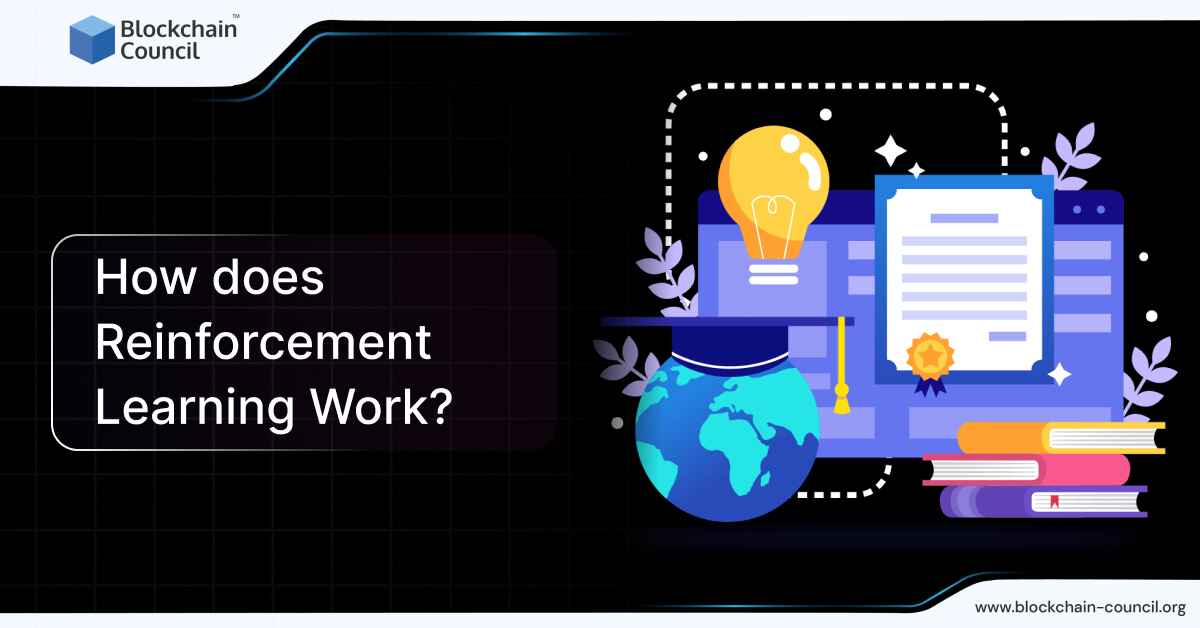
- Blockchain Council
- February 10, 2025
Artificial intelligence (AI) plays a key role in digital marketing, even in email campaigns. Marketers are now using AI to create more personalized, effective, and engaging email strategies. These approaches help businesses interact better with their audience.
AI-Powered Personalization
One major shift AI has brought to email marketing is improving how personalized these messages can be. In the past, email marketers would often send out the same content to everyone on their list. AI has changed this approach by introducing hyper-personalization. AI tools can now assess customer behaviors, purchase histories, and interaction patterns to design unique content for each individual.
For example, Amazon uses AI in its emails to suggest products based on a customer’s previous browsing or purchase history. This approach has raised engagement and boosted sales. If a customer abandons items in their cart, AI can automatically send a reminder email featuring those exact products. Sometimes, the emails even include offers or reduced prices to encourage a sale.
Cosabella, a lingerie brand, quickly saw benefits by adding AI to their email marketing strategy. By tailoring content to each shopper based on browsing activity, they saw a 4% increase in open rates and a 60% rise in email-driven revenue.
AI’s impact doesn’t stop at product recommendations. Tools like Phrasee help businesses fine-tune subject lines, email text, and calls to action by testing various versions to find out what works best. Farfetch, a luxury fashion retailer, used AI to improve its click rates by 38% while maintaining its brand voice in email content.
Enhanced Audience Segmentation
AI also makes audience segmentation more precise. Traditionally, marketers would categorize their subscribers based on factors like age or location. However, AI allows for a more refined approach by grouping subscribers based on their behavior, buying habits, and engagement levels.
For instance, Brevo (formerly Sendinblue) uses AI to analyze customer data, creating more accurate segments for targeting. This technology enables businesses to send emails that are more relevant and better timed, increasing engagement. With AI doing most of the work, marketers can better focus their efforts on crafting high-quality campaigns without manually identifying customer needs.
Being a Certified Artificial Intelligence (AI) Expert™ will help you understand these concepts and make the most of your AI strategies.
Predictive Content and Suggestions
Predictive AI takes things further by studying past data to predict future behaviors. This type of technology is important for improving email content. It can predict what type of content a recipient is likely to engage with, whether it’s a product suggestion or a special offer. It goes beyond basic personalization, recognizing customer needs before they even express them.
For example, the health company Natural Cycles uses AI to divide its audience and forecast which users are likely to interact with certain emails based on current activity. This helps businesses send messages at the right time that match the recipient’s preferences. Using AI to guide their content, they managed to boost engagement while saving time and effort.
Writing the right prompts is what makes AI interactions truly effective. That’s why getting certified as a Certified Prompt Engineer™ is a game-changer for anyone in the field.
AI in Automated A/B Testing
A/B testing has been a long-standing practice in email marketing, but AI brings a new level of efficiency to the process. Instead of marketers manually comparing two versions of an email, AI can test multiple elements—like subject lines, images, and text—at the same time. AI can assess which combination performs best for different groups and provide real-time results.
Platforms like SendGrid use AI to help businesses improve their campaigns by suggesting tweaks based on the results of these tests. AI-driven A/B testing provides faster, data-backed insights that help marketers enhance their emails without wasting time on trial and error.
Boosting Email Deliverability
One of the key concerns for any email campaign is ensuring the message reaches the inbox instead of landing in the spam folder. AI helps improve deliverability by managing the sender’s reputation and controlling the volume of emails sent. It can also spot issues like sending emails to invalid addresses, which can harm a brand’s reputation.
AI platforms like Brevo analyze deliverability rates and adjust campaigns to improve the chances of emails reaching the inbox. This feature is especially useful for companies sending high volumes of emails, where maintaining deliverability is essential.
AI-Driven Automation
Automation is another area where AI proves incredibly helpful in email marketing. AI can manage the entire email workflow, from creating content to scheduling when emails are sent. For instance, AI can automatically send follow-up emails when a customer abandons their shopping cart, or it can welcome new subscribers without manual involvement.
Platforms like ActiveCampaign use AI to manage these workflows, sending emails based on customer behavior and preferences. AI helps optimize when emails are sent so they land in the inbox at times when recipients are most likely to open them. This improves visibility and overall engagement.
If you want to learn all the ins and outs of AI and how to make the most of AI systems, consider getting our Unlimited Learning Subscription (AI) and get ready to lead the mass!
Continuous Improvement Through AI
Finally, AI doesn’t stop once the email is sent. It continuously tracks and learns from how campaigns perform, offering suggestions to enhance future ones. This constant feedback loop means that email strategies powered by AI keep improving over time.
Tools like Mailchimp and HubSpot offer in-depth analytics to track how campaigns are performing. These insights help marketers adjust their strategies, improving each campaign’s effectiveness. As a result, companies see better interaction and a higher return on investment.
Conclusion
Today, AI has improved how email campaigns are done. It enhances personalization, improves segmentation, and predicts what content to use. AI ensures emails reach the inbox and allows businesses to automate tasks. By learning from data, AI continuously improves results. As AI evolves, its role in email marketing will keep expanding, helping businesses connect more effectively with their customers.
Want to build better AI systems? Becoming a Certified Generative AI Expert™ could be the boost you need to stay ahead in the game.





































































 Guides
Guides News
News Blockchain
Blockchain Cryptocurrency
& Digital Assets
Cryptocurrency
& Digital Assets Web3
Web3 Metaverse & NFTs
Metaverse & NFTs
